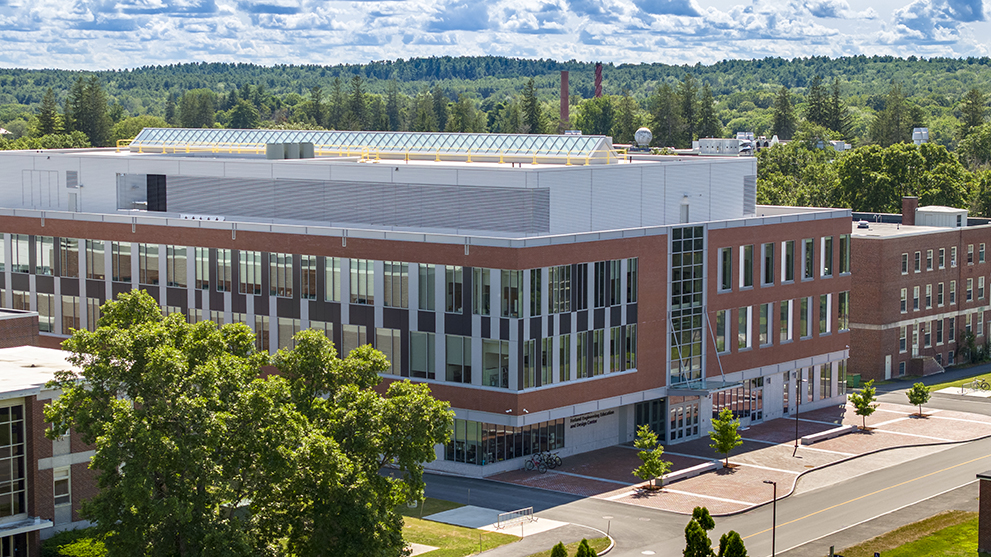
A new era in engineering and computing
The Maine College of Engineering and Computing pioneers interdisciplinary learning and technological advancement.
The Maine College of Engineering and Computing, officially launched on April 1, 2023, marked a significant stride in the region’s workforce development, research and economic growth. The college’s E. James and Eileen P. Ferland Engineering Education and Design Center (Ferland EEDC) and interdisciplinary focus embody UMaine’s commitment to fostering learning environments that propel engineering advancements.
The new reimagined college addresses growing demand for skilled professionals in engineering and computing. With an emphasis on interdisciplinary learning, the college aims to populate the workforce with technically qualified individuals who can collaborate across business sectors. Biomedical engineering is a testament to this interdisciplinary approach, merging fields like mechanical and electrical engineering with computing, artificial intelligence and biomedical science.
The Ferland EEDC, a state-of-the-art facility that opened in 2022, encourages collaborative learning among engineering and computing students by providing design suites, labs, and collaboration spaces that foster knowledge-sharing among students and faculty as they engage in innovative projects. The investment is a testament to UMaine’s commitment to hands-on, curiosity-driven education, which is vital to staying at the forefront of technological advancement.
Biomedical engineering at UMaine goes beyond traditional boundaries, focusing on societal impacts, particularly in Maine’s predominantly rural settings. By learning through projects that aim to develop vests for extreme conditions and create devices for athletic enhancement, UMaine students also learn practical applications in research findings. These initiatives contribute to the health of Mainers and provide students with real-world experiences, preparing them for future growth in the industry.
The Maine College of Engineering and Computing is also a hub for industry collaboration and research. The college capitalizes on research for its students by integrating scholarly activities with learning. This approach ensures that students are both academically proficient and ready to meet the evolving needs of the industry. Partnerships with entities such as the Maine Grant Space Consortium and The Jackson Laboratory compound UMaine’s impact and offer students opportunities for internships and co-ops, further enhancing their learning experiences.
Promotion of diversity and inclusion
The Maine College of Engineering and Computing recognizes the value of diverse perspectives, especially in problem-solving fields like engineering, and actively works to attract a diverse range of students. The college collaborates with the College of Education and Human Development to use data-driven strategies to broaden the appeal of engineering and computing to all population segments. By making engineering accessible and relatable, the college hopes to inspire a diverse generation of thinkers and problem-solvers to join its community.
As the college takes shape, it is setting a standard for engineering and computing education centered on inclusion, interdisciplinary collaboration, and innovation. With facilities such as the Ferland EEDC and frontier programs in biomedical engineering, the college is well-positioned to meet its growth expectations. The college’s emphasis on real-world applications, industry collaboration, and student-driven learning ensures its graduates are ready for evolving job markets and equipped to lead and innovate within their chosen fields.
These advanced facilities and unique programs poise the Maine College of Engineering and Computing to become a hub of economic and educational development in New England. By fostering an environment of collaboration, innovation, and inclusion, the college is preparing tomorrow’s problem-solvers and innovators to actively shape the future of engineering and computing.
